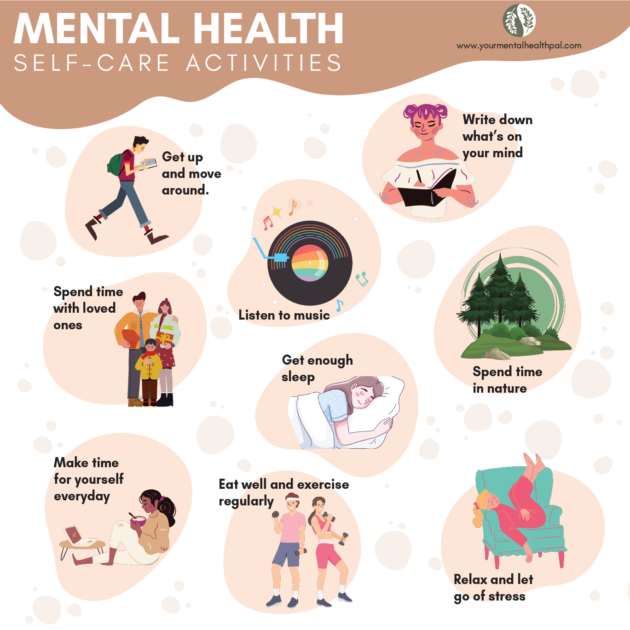
Nurturing Mental Health: Self-Care Strategies
Understanding Mental Health Self-Care
Self-care is foundational for maintaining mental health. It involves deliberate actions and habits that prioritize emotional and psychological well-being. Understanding what mental health self-care entails is the first step toward implementing effective strategies.
Prioritizing Self-Care Activities
Engaging in various self-care activities plays a pivotal role in nurturing mental health. These activities can range from mindfulness practices like meditation and deep breathing exercises to hobbies that bring joy and relaxation. Prioritizing these activities helps in reducing stress and fostering a positive mental state.
Establishing Healthy Boundaries
Setting boundaries is crucial for protecting your mental health. It involves knowing your limits and communicating them to others. Learning to say no when needed and creating boundaries that safeguard your emotional space aids in preserving mental well-being.
Seeking Support Networks
Building a support network is integral in mental health self-care. Surrounding yourself with supportive friends, family, or joining support groups can provide a sense of belonging and emotional comfort. Sharing experiences and seeking advice from trusted individuals can alleviate feelings of isolation.
Embracing Healthy Habits
Incorporating healthy habits into your lifestyle significantly impacts mental health. Regular exercise, balanced nutrition, and sufficient sleep positively influence mood and overall well-being. Additionally, reducing substance intake, like limiting alcohol and caffeine, contributes to a healthier mindset.
Practicing Mindfulness and Stress Management
Mindfulness practices, such as mindfulness meditation or yoga, are powerful tools for managing stress and enhancing mental clarity. These practices help in grounding oneself in the present moment, reducing anxiety, and promoting a more balanced perspective on life’s challenges.
For more insights and detailed self-care strategies for mental health, you can explore resources like Mental health self-care. This source offers a wealth of information, guidance, and practical tips to enhance your self-care routine.
Setting Realistic Expectations
Avoiding perfectionism and setting realistic expectations for yourself is crucial for mental well-being. Embrace imperfections and understand that setbacks are part of life. Cultivating self-compassion and celebrating small victories fosters a positive self-image.
Engaging in Relaxation Techniques
Integrating relaxation techniques into your routine can alleviate stress and promote relaxation. Techniques like progressive muscle relaxation, visualization, or taking soothing baths can help in calming the mind and body, reducing tension and anxiety.
Reflecting and Recharging
Taking time for self-reflection and introspection is essential. Journaling, practicing gratitude, or engaging in activities that promote self-reflection provide clarity and aid in understanding emotions. Taking breaks and allowing yourself to recharge is equally vital for mental rejuvenation.
Seeking Professional Help When Needed
Lastly, recognizing when to seek professional help is a vital aspect of mental health self-care. If feelings of distress persist or interfere significantly with daily life, seeking guidance from mental health professionals can provide valuable support and interventions.
Nurturing mental health through self-care is an ongoing journey. By implementing these strategies and seeking the necessary support, you can cultivate a more resilient and balanced mental state, contributing to overall well-being.


